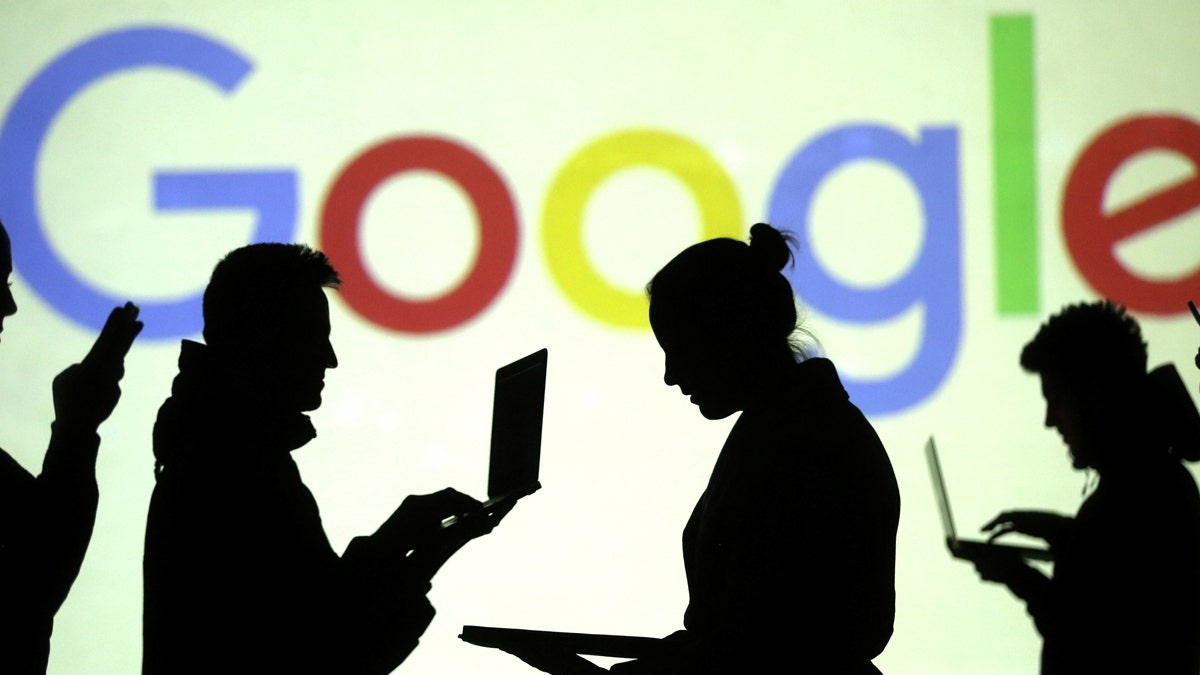
Silhouettes of laptop and mobile device users are seen next to a screen projection of Google logo in this picture illustration taken March 28, 2018. REUTERS/Dado Ruvic/Illustration - RC1F87EA23D0 (Reuters)
The ethical dilemma swirling around facial recognition technology has prompted Google to hit pause on selling its own system to the public.
On Thursday, Google's Cloud business said it was holding off on offering a facial recognition system for general-purposes, citing the potential for abuse.
"We continue to work with many organizations to identify and address these challenges, and unlike some other companies, Google Cloud has chosen not to offer general-purpose facial recognition APIs before working through important technology and policy questions," company Vice President of Global Affairs Kent Walker wrote in a Thursday blog post.
Walker's statement was likely a subtle jab toward Amazon, which has been offering a facial recognition system to customers, including US law enforcement. Amazon's system, dubbed Rekognition, can identify people's faces in digital images and videos, making it useful for police to quickly look up suspects in criminal investigations. However, civil liberty groups fear the same technology can be abused to power mass surveillance over security cameras to track everyday citizens.
More From PCmag
Walker actually devoted most of the post to the benefits of facial recognition and AI algorithms that can decipher objects in images. For example, Google recently developed an AI model to help eye doctors quickly identify whether their diabetic patients suffered from a complication that can cause permanent blindness if left untreated.
"Our AI model now detects diabetic retinopathy with a level of accuracy on par with human retinal specialists," Walker wrote. "This means doctors and staff can use this assistive technology to screen more patients in less time, sparing people from blindness through a more timely diagnosis."
Google wants to bring the benefits of AI-driven technology to everyone, so it plans to continue researching the technology and carry out certain projects in coordination with third-party researchers, non-profits, governments, and businesses. "However, like many technologies with multiple uses, facial recognition merits careful consideration to ensure its use is aligned with our principles and values, and avoids abuse and harmful outcomes," Walker added.
In June, Google adopted a set of new company principles on AI development that specifically ban the design and deployment of artificial intelligence as a weapon or surveillance tool. This came after Google employees protested the company's involvement in a Pentagon project to use AI to analyze drone footage.
On Thursday, the American Civil Liberties Union praised Google's decision to refrain from offering a general-purpose facial recognition system. "This is a strong first step," ACLU director Nicole Ozer said in a statement. "Google today demonstrated that, unlike other companies doubling down on efforts to put dangerous face surveillance technology into the hands of law enforcement and ICE, it has a moral compass and is willing to take action to protect its customers and communities."
Google does currently offer an object-recognition technology called Cloud Vision that can scan images and detect what they depict. But at this point, the system only offers "face detection." It does not support the ability to recognize a face and determine the person it belongs to.
Meanwhile, rival Microsoft has also been selling a facial recognition system through its Azure platform. However, Microsoft has been outspoken in calling on governments to introduce laws that will regulate the technology before they can be abused on a wide scale.
This article originally appeared on PCMag.com.




















